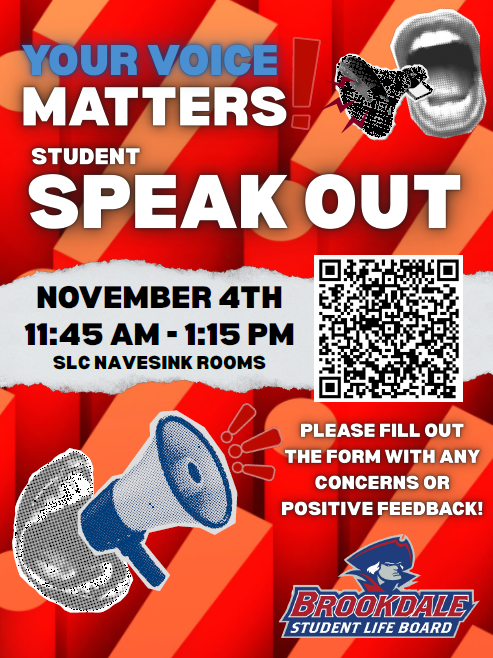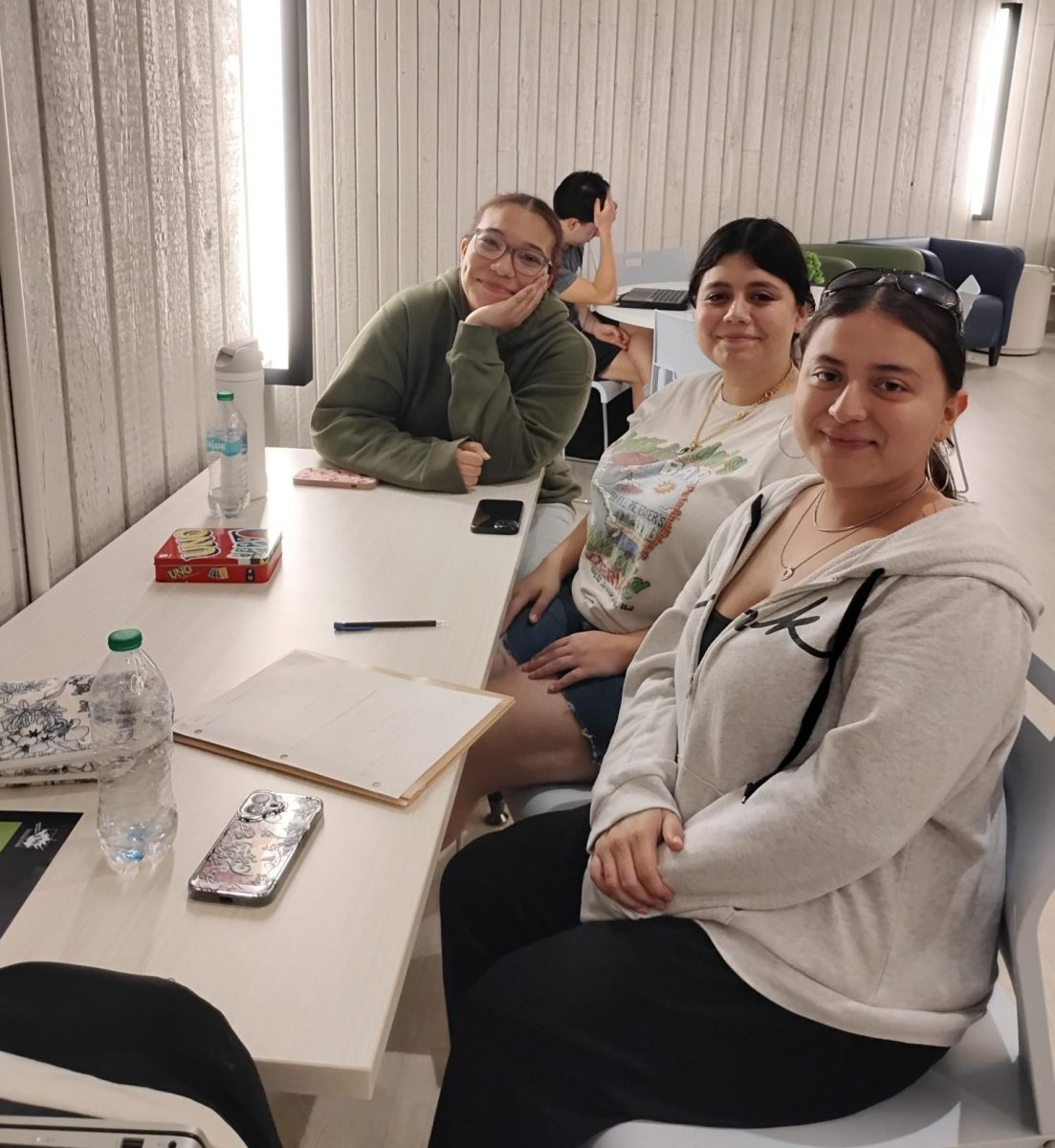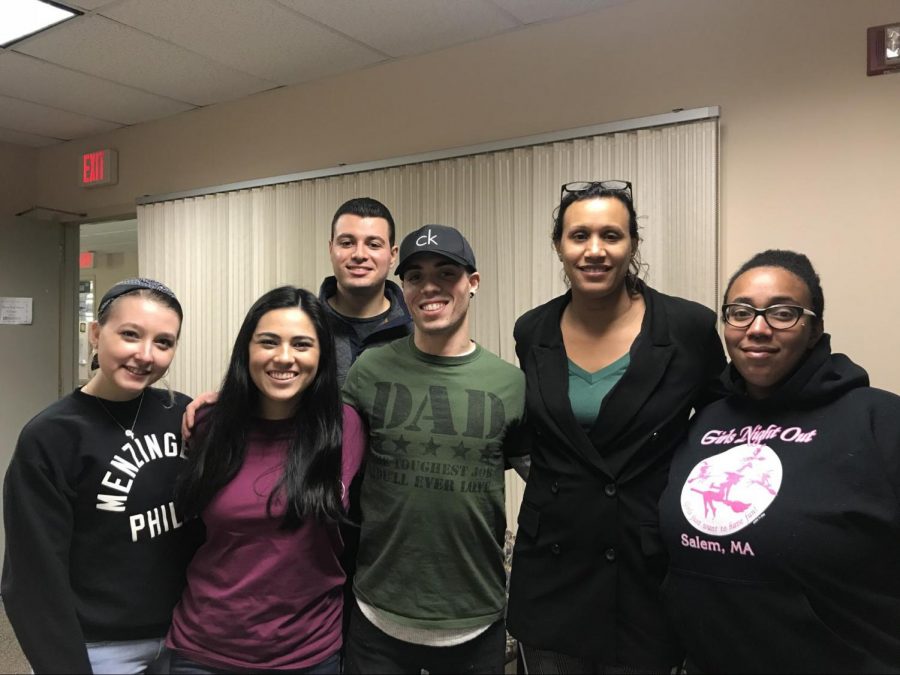Brookdale Students Address the Monmouth County’s Opioid Epidemic
Dr. Nicole Jackson Walker poses with some students who attended her session on the opioid epidemic. Photo by Corine Tamayo.
On Tuesday, Nov. 13, Dr. Nicole Jackson Walker held an informational session about Monmouth County’s opioid epidemic. The event was a part of Psychology Week and Opioid Awareness Month, sponsored by Brookdale’s Phi Theta Kappa Chapter.
Jackson Walker, an assistant professor from Brookdale’s Psychology and Human Services Department, teaches a variety of classes pertaining to addiction, including Introduction to Addiction Studies; Individual Counseling of the Addicted Client; Social, Cultural and Familial Aspects of Addiction; and Assessment and Diagnosis.
Jackson Walker began the presentation by posing a question to the audience: How do addicts act, think and behave? She defined substance abuse disorder, saying that it is based on certain behaviors. Those affected by substance disorder may obsess over the drug, compromise their values and engage in other risky behaviors.
She addressed the diagnostic complexities of substance abuse disorder. There is no blood test for addiction. Rather, there is only a blood test to check for the physical presence of the drugs. However, there is an online quiz through Hazelden Betty Ford Foundation. The quiz has 18 questions that should be asked in a conversational tone. The attitude of the person’s responses could also be an indicator when taking the quiz in-person.
Jackson Walker overviewed different types of treatment, such as classical conditioning, which aims to break the negative associations by identifying and coping with triggers. Whereas, operant conditioning encourages positive reinforcement as opposed to negative reinforcement. Other drugs can also be used to help wean someone off addiction. One drug, methadone, blocks the effects of getting high. These drug treatments need to be properly regulated by physicians or facilities, and users need to be weaned off them eventually, too.
Notably, this information was related to the opioid epidemic in Monmouth County. Monmouth County is especially vulnerable to opiod addiction because of its wealth and various ports of access. According to the New Jersey Substance Abuse Monitoring System, 4,508 of 9,170 clients at Monmouth County Treatment Sites in 2016 were heroin users. An additional 680 clients used other opiates. That means that roughly 56 percent of clients at these treatment sites were affected by opiods.
To close, Jackson Walker led a discussion with the audience members about their experiences with opioids during which students described their experience as witnesses to addiction.

























